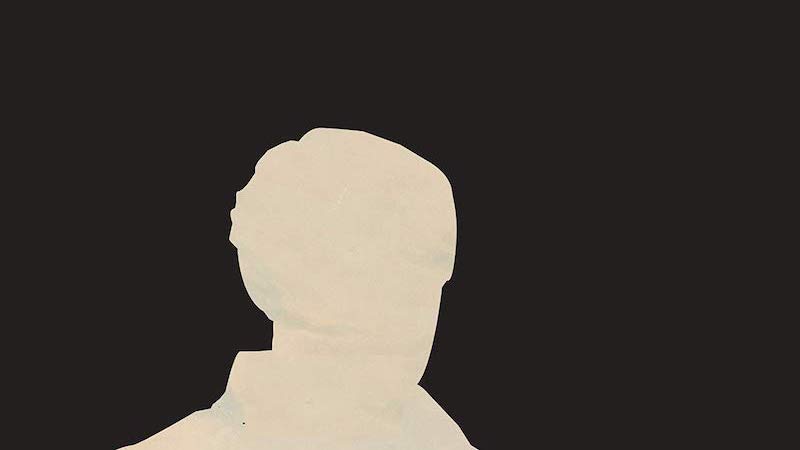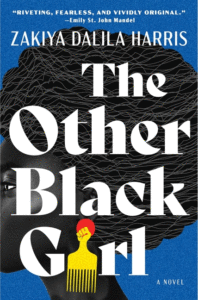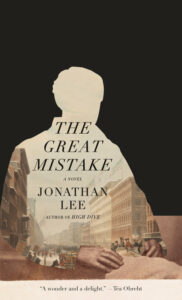
Our fivesome of faboulous reviews this week includes Julian Lucas on Clint Smith’s How the Word is Passed, Merve Emre on Mieko Kawakami’s Heaven, Lovia Gyarkye on Zakiya Dalila Harris’ The Other Black Girl, Ron Charles on Rivka Galchen’s Everyone Knows Your Mother Is a Witch, and Alex Preston on Jonathan Lee’s The Great Mistake.
“Gregarious, learned and engagingly open-minded, the book meets America where it is on the subject—which is to say, all over the place … [Clint] skillfully braids interviews with scholarship and personal observation, asking, ‘How different might our country look if all of us fully understood what had happened here?’ … The result is a tour of tours and a reckoning with reckonings, which sketches an impressive and deeply affecting human cartography of America’s historical conscience. The book’s standout quality is the range and sincerity of its encounters … His ease with strangers is charmingly apparent … Never getting lost in his story’s many thickets, Smith confidently interleaves the history of American slavery with his subjects’ varied relationships to the institution’s evolving legacy … Smith has a penchant for evoking people and places, and occasionally garlands his text with descriptions of voices, landscapes and curricula vitae that distract from the substance of his research. His generosity of spirit also leads him to affirm some instances of remembrance that might deserve more scrutiny … But it’s surely a sign of strength when even a book’s shortcomings vindicate its larger project. Smith’s unapologetically subjective map of American memory is an extraordinary contribution to the way we understand ourselves.”
–Julian Lucas on Clint Smith’s How the Word is Passed: A Reckoning with the History of Slavery Across America (The New York Times Book Review)
“In an age of voice-driven fiction, the phrase ‘novel of ideas’ has an unavoidably dusty ring. It summons the drowsy cadence of the philosopher, the tedious rehearsal of concepts on loan from antiquated sources … Yet Kawakami is interested neither in demonstrating what makes people good nor in delighting in their antisocial perversities. Rather, her project is, like Nietzsche’s, a genealogical one … Kawakami never evangelizes, never wags a finger. She simply sets first-person narrations of suffering alongside stumbling dialogues, attempts to make that suffering intelligible to others … Heaven also models a rigorous and elegant process of inquiry that can transcend its pared-down fictional world. It agitates against the enduring idea that the best novels concern themselves with the singular minds and manners of people, offering no resources for the political and moral demands of ‘real life.'”
–Merve Emre on Mieko Kawakami’s Heaven (The New Yorker)

“The Other Black Girl isn’t a story about finding solidarity or even about speaking up; it probes something more unsettling. As the novel presents competing ideas of success at the office, and the sacrifices that might entail, it evolves into an intense psychological thriller … Although Harris’s book takes up the office novel’s critique of opaque and soul-crushing hierarchies, it also flirts with race transformation, a theme explored in decades of African American literature … Harris formulates a central dilemma: For many Black people, the office setting becomes a microcosm of the version of the United States that sees them as vessels of struggle and tension. To push back against that system feels essential. And yet the Black experience in America has never been solely defined by struggle … Diana or Kendra, Hazel or Nella, career or identity: This is the binary that pulses through The Other Black Girl. The novel shows a workplace pushing individuals into ever-hardening, limiting roles. It captures, through Nella especially, the stories some Black employees feel they must tell themselves about themselves to survive all-white environments … If The Other Black Girl often swerves beyond the conventions of the genre, into territory between psychological thriller and sci-fi, it may be because the specific experience of the Black employee—haunted by precarity and tension—can be almost otherworldly.”
–Lovia Gyarkye on Zakiya Dalila Harris’ The Other Black Girl (The New Republic)
“The comedy that runs through Everyone Knows is a magical brew of absurdity and brutality. Galchen has a Kafkaesque sense of the way the exercise of authority inflates egos and twists logic … There’s real sorcery here, but it arises only from the way Galchen fuses ancient and modern consciousness … testimonies present a jaw-dropping catalogue of anxieties, irritations and non sequiturs—all the various ways human beings can make themselves believe whatever they must to avoid acknowledging that they’re afraid, that they’re jealous, that they can’t control their lives. Late in the novel, all the most bizarre accusations are enumerated in a list that could pass for Renaissance Twitter … The fate of Kepler’s mother is a matter of historical record, but Galchen arrives at something the facts can’t catch: The exhaustion, the bone-weariness of fighting such misogyny year after year. It’s enough to break a weaker person.”
–Ron Charles on Rivka Galchen’s Everyone Knows Your Mother Is a Witch (The Washington Post)

“Jonathan Lee’s The Great Mistake is a novel so comprehensively steeped in American literary history that it comes as something of a surprise to find that its author is a fortysomething from Surrey. It’s as if Lee…has distilled more than a century of American letters into a single book. There’s Fitzgerald, of course—The Great Gatsby is echoed in more than just the novel’s title. There’s Hemingway in the muscular lyricism of the prose; Sherwood Anderson and Steinbeck in the beautifully drawn portraits of rural America; there’s the restraint of Henry James in the sinuous sentences; and then there’s a host of lesser-known writers who took for their subject turn-of-the-century New York and the riotous excesses of early capitalism: Theodore Dreiser, Frank Norris and Upton Sinclair … It’s perhaps fitting that at a time when the Great American Novel is at a low ebb – reeking too much of the gentleman’s club for our enlightened age—a Brit should write what is likely to be the best American novel of the year. The Great Mistake is a book of extraordinary intelligence and style, written in language at once beautiful and playfully aphoristic. It’s a novel whose protagonist—decent, dignified, wounded—will live long in the mind of those that read it.”
–Alex Preston on Jonathan Lee’s The Great Mistake (The Guardian)
If you buy books linked on our site, Lit Hub may earn a commission from Bookshop.org, whose fees support independent bookstores.

